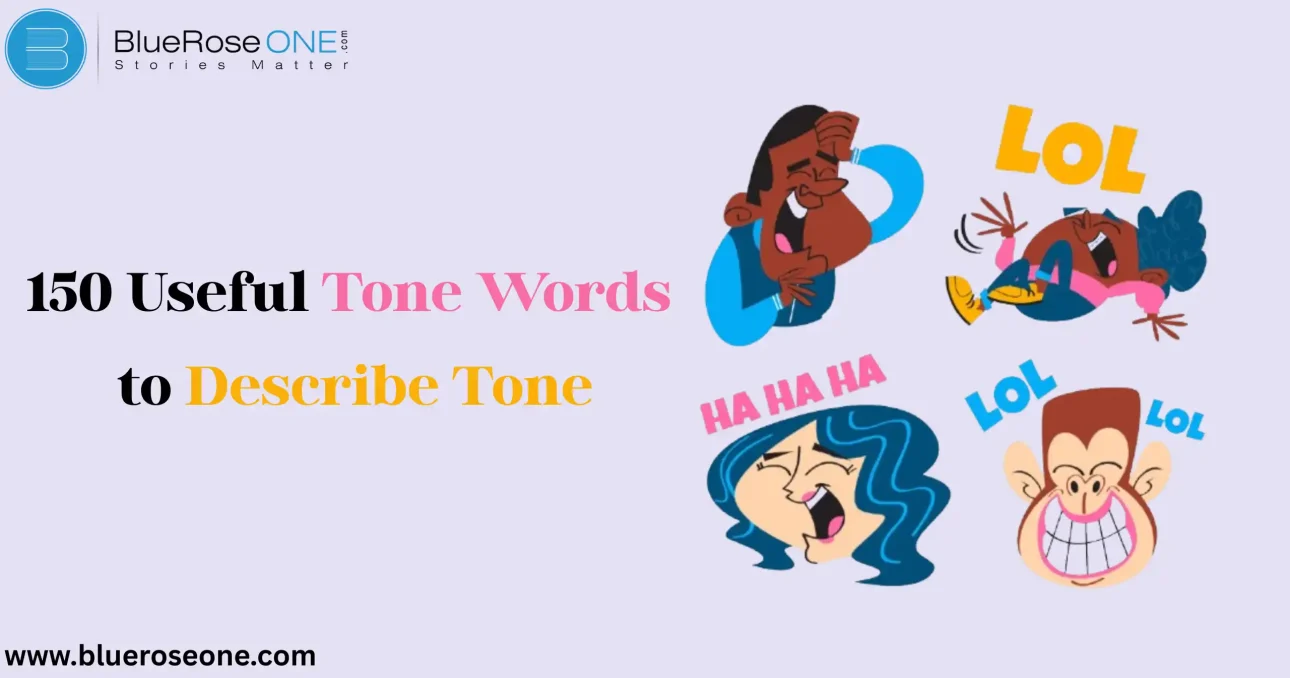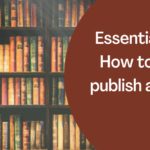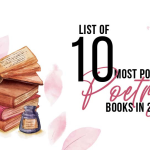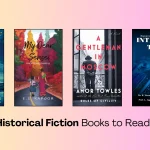What is Tone in Writing?
Tone in writing is the author’s attitude or emotional stance toward the subject and audience. It’s not what you say, but how you say it. Whether you’re writing a blog, novel, essay, or even a tweet tone speaks louder than words. In this article we will discuss such tone words that will help you describe different tones.
Why Tone Words Matter
Think of tone words like spices in cooking. They don’t change the main ingredient, but they flavor it dramatically. A sarcastic tone vs. a hopeful one can change the entire meaning of a sentence. For example:
- “Oh, great, another Monday.” (Sarcastic)
- “Oh, great! Another Monday!” (Genuinely excited)
Huge difference, right?
You may also like: 100+ Adjectives Begin with N (With Meanings & Examples)
Understanding Tone in Literature and Communication
How Tone Influences Meaning
Tone shapes how a message is received by adding emotional depth and perspective. In literature, tone reveals a writer’s attitude whether humorous, serious, or sarcastic, shifting how readers interpret characters or themes.
In communication, it affects clarity and intent, influencing relationships and reactions. Even the same words can convey entirely different meanings when spoken in varied tones.
Difference Between Tone and Mood
- Tone refers to the author’s attitude toward the subject or audience.
- Mood is the emotional effect the text creates in the reader.
- Tone is expressed through word choice and style.
- Mood is shaped by setting, theme, and diction.
Understanding both enhances interpretation and communication.
Examples of Tone in Everyday Writing
- Email to a boss: “I hope this message finds you well.” (Professional, Polite)
- Text to a friend: “Yo, what’s up!” (Casual, Friendly)
- Complaint letter: “I am deeply dissatisfied.” (Formal, Assertive)
You may also like: HEA Meaning in Books, Texts, and Pop Culture Explained

Categories of Tone Words
Positive Tone Words
Warm & Friendly
- Affectionate
- Cheerful
- Grateful
- Sympathetic
Encouraging & Optimistic
- Hopeful
- Uplifting
- Supportive
- Confident
Encouraging & Optimistic
Angry & Hostile
- Bitter
- Furious
- Aggressive
- Contemptuous
Pessimistic & Hopeless
- Cynical
- Gloomy
- Depressed
- Desperate
Neutral or Objective Tone Words
Formal & Informative
- Academic
- Professional
- Impersonal
- Objective
Detached & Unemotional
- Distant
- Cold
- Reserved
- Neutral
Funny & Witty Tone Words
- Humorous
- Playful
- Quirky
- Lighthearted
Sarcastic or Ironic Tone Words
- Mocking
- Sardonic
- Satirical
- Snarky
Sad & Melancholic Tone Words
- Regretful
- Nostalgic
- Mournful
- Sorrowful
Romantic & Sentimental Tone Words
- Tender
- Passionate
- Dreamy
- Intimate
Professional & Assertive Words
- Direct
- Diplomatic
- Persuasive
- Respectful
You may also like: Top 10 Arundhati Roy Books You Must Read in 2025
150 Common Tone Words with Explanation and Examples
Words 1–30: Positive Tone Words
| Word | Meaning | Example Sentence |
|---|---|---|
| Joyful | Full of happiness | “She had a joyful expression on her face.” |
| Encouraging | Giving support or confidence | “His words were incredibly encouraging.” |
| Affectionate | Showing fondness | “He gave her an affectionate smile.” |
| Hopeful | Feeling or inspiring hope | “We remain hopeful about the outcome.” |
| Supportive | Providing emotional help | “Her tone was very supportive.” |
| Sincere | Genuine and honest | “I gave a sincere apology.” |
| Appreciative | Expressing gratitude | “He sounded appreciative of the effort.” |
| Cheerful | Happy and optimistic | “Her cheerful voice lifted my spirits.” |
Words 31–60: Negative Tone Words
| Word | Meaning | Example Sentence |
|---|---|---|
| Sarcastic | Mocking in a bitter way | “Oh sure, like that’s going to work.” |
| Angry | Feeling or showing strong displeasure | “His voice was angry and sharp.” |
| Condescending | Talking down to someone | “Don’t use that condescending tone with me.” |
Words 61–90: Neutral Tone Words
| Word | Meaning | Example Sentence |
|---|---|---|
| Informative | Providing information | “This guide is purely informative.” |
| Objective | Unbiased and factual | “Her tone remained objective throughout.” |
| Formal | Respectful and professional | “He maintained a formal tone in the email.” |
Words 91–120: Funny, Ironic, Sarcastic
| Word | Meaning | Example Sentence |
|---|---|---|
| Witty | Clever and humorous | “His witty remarks made the class fun.” |
| Snarky | Rudely mocking | “She gave a snarky reply.” |
| Ironic | Contrary to what’s expected | “That’s ironically the best part.” |
Words 121–150: Romantic, Assertive, Miscellaneous
| Word | Meaning | Example Sentence |
|---|---|---|
| Romantic | Expressing love | “His tone was soft and romantic.” |
| Passionate | Showing strong emotion | “She spoke in a passionate voice.” |
| Assertive | Confident and forceful | “Be more assertive in your response.” |
How to Identify Tone in a Text
Key Clues to Look For
Word choice (diction)
Sentence structure
Punctuation (!!! or …)
Figurative language
You may also like: 150 Words That Start with K to Level Up Your Vocabulary
Common Mistakes in Tone Interpretation
Misreading sarcasm as sincerity
Confusing tone with mood
Assuming tone is constant throughout the text
How to Use Tone Words in Your Own Writing
Adjusting Tone to Match Your Purpose
Are you writing a complaint? Be formal.
Are you sending a love note? Be romantic.
Writing an Instagram caption? Be playful.
Tips for Writers and Students
Read your writing out loud
Imagine your reader’s reaction
Don’t overuse extreme tone words
Be consistent with tone across paragraphs
You may also like: 100+ Adjectives Begin with I (With Definitions & Examples)
Conclusion
Tone words are the unsung heroes of great writing. They help you add personality, emotion, and clarity. Whether you want to motivate, criticize, entertain, or inform there’s a tone for that.
Mastering tone words will not only upgrade your writing but also help you better understand others. So go ahead, explore the tone spectrum and make your words count.
Frequently Asked Questions
Tone words describe the author’s attitude toward the subject or reader, such as cheerful, sarcastic, or formal.
They make your message more expressive, clear, and impactful—helping you connect better with your reader.
Tone is the author’s attitude; mood is what the reader feels. They’re closely related but not the same.
Yes, especially if it includes contrast, irony, or dual meaning. Context matters.
Absolutely! They help set the right atmosphere—whether you’re negotiating, emailing, or presenting.

















[…] You may also like: 150 Useful Tone Words to Describe Tone | Explanation with Examples […]
[…] You may also like: 150 Useful Tone Words to Describe Tone | Explanation with Examples […]
[…] You may also like: 150 Useful Tone Words to Describe Tone | Explanation with Examples […]
[…] You may also like: 150 Useful Tone Words to Describe Tone | Explanation with Examples […]